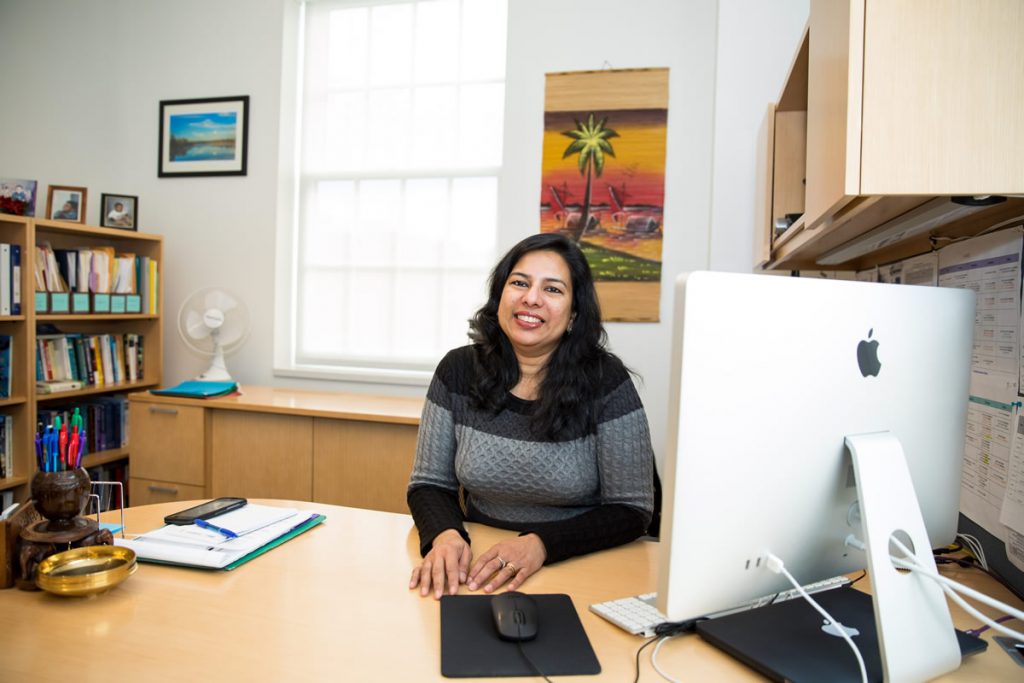
Computer science and journalism may seem like they’re worlds apart. But spend a few minutes with Monisha Pulimood and you’ll wonder why you ever thought they didn’t go hand-in-hand.
With a National Science Foundation grant and a partner in Kim Pearson, associate professor of journalism and professional writing, the computer science professor developed a model for experiential and community engaged learning that immersed her computer science class and Pearson’s journalism students in computational thinking.
The students worked with Habitat for Humanity not to swing hammers, but to delve deep into EPA data about polluted land and develop a way to help the organization make smart decisions about buying plots for future housing sites. Pulimood’s students would create a database of pollution data, and Pearson’s students would translate that data into stories that would inform the community and persuade them to take action.
“TCNJ has this mission for students to learn by service and engagement with the community,” says Pulimood. “Volunteering is great, but there are deeper ways in which we can contribute by using our disciplinary backgrounds.”
Now, with the support of the Barbara Meyers Pelson ’59 Chair in Faculty-Student Engagement, Pulimood hopes to advance an ambitious agenda of fostering similar faculty-student collaborations at TCNJ across disciplines, with community partners like Habitat, where appropriate.
Preparing students to become effective contributors in today’s workforce, she says, requires a pedagogy that emphasizes problem solving in a diverse and collaborative community in which they can solve real problems with their peers from other disciplines. Students must be able to see themselves as “collaborators” in problem solving rather than merely “service providers” who implement solutions that others may have devised.
Pulimood is excited to have the capacity to extend the project’s reach beyond the borders of her own discipline. When she begins her three-year term as chair in fall 2018, Pulimood wants to create opportunities for faculty to talk to each other and learn how they too can collaborate.
“The world is changing and the kinds of challenges we’re seeing are far more complex than one person from one disciplinary background can address,” she says. “We need people from different backgrounds to come together, and they need to be able to understand each other. We have a responsibility to our students to see this at TCNJ so that they’re ready for it in the workplace.”
—Emily W. Dodd ’03
